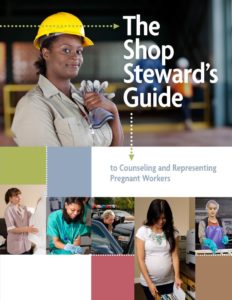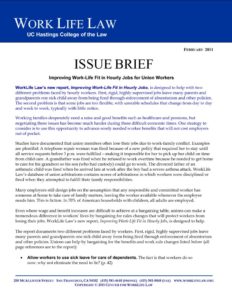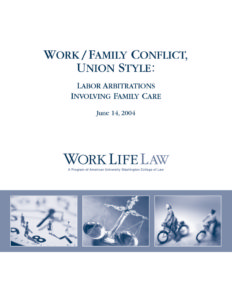Many workers are disciplined or discharged because of work/family conflicts. The Center for WorkLife Law works with unions to avoid these negative outcomes.
Effective Representation
Union representatives can train workers how to handle work/family conflicts when they arise. WorkLife Law’s studies of union arbitrations have revealed that arbitrators are much more likely to reduce discipline arising from work/family conflicts if the worker handles the situation well. Unions play an essential role in training their members how to avoid coming into conflict with their employers over work/family issues – or how to position themselves so that the discipline will be “just cause” for discipline or discharge if their case should come to arbitration.
Examples of arbitrations involving union members in which discipline or discharge was overturned:
- A janitor who was the divorced mother of a 17 year old with the mentality of an 18 month old failed to report one Saturday when her care giving arrangements fell through at the last minute. She was fired after 27 years of service.
- A grandfather was fired when he refused to work overtime because he had to get home to care for his grandson.
- A single mom was fired when she refused to work an overtime shift that would have left her two toddlers home alone overnight.
- A factory worker was fired when she left the line in response to a phone call that told her to come to the emergency room because her daughter had a head injury.
To empower workers to exercise their rights, unions need to train their workers how to handle work/family conflicts when they arise. A key goal is to train men to discuss their work/family conflicts openly, so that they are not fired for insubordination for refusing to discuss their situation on the grounds that “it is personal.” WorkLife Law works with unions to help them design these trainings. To learn more, contact the Center.
Webinar: Union Support for Pregnant and Breastfeeding Workers
Click here to watch the webinar.
This webinar teaches shop stewards, labor educators, and union members what legal rights pregnant and breastfeeding workers have under federal and state law, how to use common collective bargaining agreement terms to ensure fair treatment, and tips for counseling members and handling related grievances. The webinar is co-produced by The Center for WorkLife Law, Labor Project for Working Families, UFCW, and AFL-CIO.


